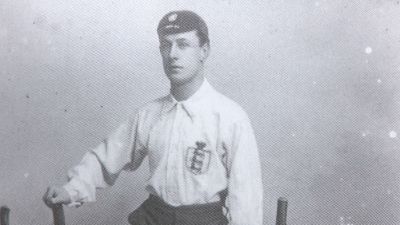
Born on January 25, 1870, in Gainsborough, Lincolnshire, Fred Spiksley was destined to leave a significant mark on the world of football. His early years in Gainsborough, a small industrial town, were spent mastering the basics of football on local fields. His natural agility and speed were evident from a young age, setting him apart from his peers and earmarking him for future greatness.
Sheffield Wednesday and Domestic Success
Fred Spiksley’s ascent in professional football began when he signed with Sheffield Wednesday in 1891. This move marked the start of an illustrious career at the club where he became renowned for his remarkable goal-scoring ability. Throughout his time at Sheffield, he scored over 100 goals in 293 appearances, a remarkable feat that highlighted his prowess as a forward.
One of Spiksley’s most notable performances came during the 1896 FA Cup Final, where he scored two crucial goals to secure a 2-1 victory against Wolverhampton Wanderers. This victory not only etched his name into the annals of the club’s history but also demonstrated his knack for performing in critical matches.
International Career and Impact
Spiksley’s excellence on the club stage soon translated into international recognition. He earned his first cap for England in March 1893 against Wales, marking the beginning of a stellar albeit brief international career. His defining moment came later that same year against Scotland, where he scored a hat-trick in a 5-2 victory, showcasing his exceptional skills on an international platform.
Despite playing only seven games for England, scoring five goals, his international career left a lasting impression, particularly with his performance against Scotland which remains celebrated in early international football history.
Innovative Playing Style
Fred Spiksley’s playing style was revolutionary for his time. Known for his incredible dribbling skills, he was one of the early proponents of wing play, utilizing the width of the pitch to outmaneuver defenders with his speed and precision. His ability to change the pace of the game and his strategic thinking made him a formidable opponent and a forward-thinking player whose techniques influenced generations of wingers.
Fred Spiksley at Eurocup
While Fred Spiksley himself never had the opportunity to compete in a European Championship—such a tournament didn’t exist during his playing days—his innovative style and tactical insights would have been a spectacle at a modern tournament like Eurocup 2024. Players who embody Spiksley’s style, with their pace, agility, and tactical intelligence, are often the stars of such tournaments. Looking ahead to Euro 2024, the spirit of Spiksley’s gameplay lives on in the quick, skilled wingers and strategic minds who will take the field. Fans and bettors alike eagerly anticipate these matches, where modern tactics meet the traditional grit of European football. For those interested in euro 2024 betting, the excitement builds as they analyze teams and players who reflect the kind of football ingenuity Spiksley himself might have admired.
Transition to Coaching and Global Influence
After retiring from active play in 1906, Spiksley found a new passion in coaching. His extensive travels and coaching stints took him across Europe and into the Americas. He had significant coaching roles in Germany, where he led clubs like Nuremberg and FSV Frankfurt during the 1910s, introducing advanced training methods and tactical innovations that were ahead of their times.
Spiksley also impacted football in Sweden and Mexico, where he continued to advocate for a style of play that emphasized skill over brute strength, significantly influencing the development of football in these regions.
Writing and Film
Towards the latter part of his life, Spiksley also ventured into writing and filmmaking. He co-authored a book, “Flying Over An Olive Grove,” which detailed his football philosophy and career. Additionally, he was involved in producing one of the first football instructional films, which aimed to teach techniques and tactics to a wider audience, further testament to his pioneering spirit.
Legacy and Memory
Fred Spiksley died on July 28, 1948. Despite his significant contributions to the sport, his name is not as widely recognized as some of his contemporaries. However, for those who study the history of football, Spiksley remains a seminal figure whose innovations in playing and coaching helped shape the modern game. His legacy, particularly at Sheffield Wednesday and within the broader football community, is that of a visionary who transcended the typical boundaries of his era to leave a lasting impact on the sport.
Partnership

We’re proud to partner with Legalcasino.uk, a trusted authority in the online casino space. Their team delivers in-depth reviews and expert guidance on the latest platforms, including valuable insights into the top live casinos available today.